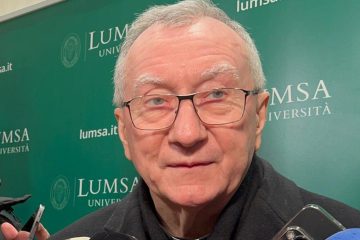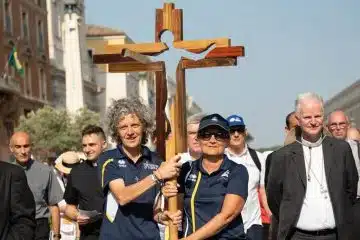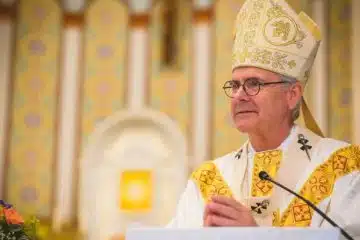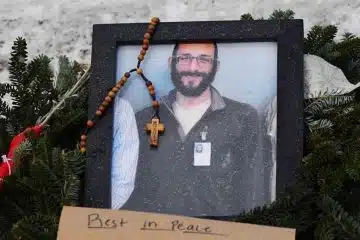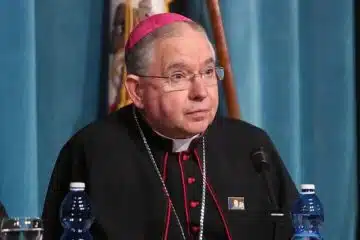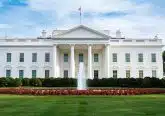The strength of littleness
By Andrea Tornielli
While meeting the “little flock” of Turkish Catholics at the Cathedral of the Holy Spirit in Istanbul, Pope Leo XIV spoke words that not only captured the reality of the Christian presence in this land but also conveyed a precious message for everyone.
The Pope invited the faithful to adopt an evangelical outlook on this Church, which once had a glorious past but is now numerically small.
He urged them to look “with God’s eyes” to discover and rediscover that he chose “the way of littleness, descending into our midst.”
The humility of the little house in Nazareth, where a young girl said “yes,” allowing God to become man; the manger in Bethlehem, where the Almighty became a newborn completely dependent on the care of a father and mother; the public life of Jesus, spent preaching from village to village in a province at the farthest reaches of the empire, far from the radar of grand history.
The Kingdom of God, Pope Leo recalled, “does not impose itself with displays of power.” And in this logic, the logic of littleness, lies the true strength of the Church.
The Successor of Peter reminded the Christians of Türkiye that the Church strays from the Gospel and from God’s logic when it believes its strength lies in its resources and structures or when it measures the fruits of its mission by numerical consensus, economic power, or its ability to influence society.
“A Christian community in which the faithful, priests and bishops do not follow the path of littleness has no future… the kingdom of God sprouts in small things, always in what is small,” Pope Francis said in a homily at Santa Marta, which was quoted by his successor today.
This is the total reversal of all human logic, which can also infiltrate the Church when business-like logic prevails, when mission is reduced to marketing strategies, when the one proclaiming the Gospel puts themselves at the center as the protagonist rather than disappearing into the background so that the light of Christ can shine.
In a time when only clicks and numbers of followers seem to matter, even the Church can be tempted to mourn a past Christianity, with its power structures, influence, and social and political relevance.
Instead, as the Gospel teaches us and as the Bishop of Rome repeats today, we must look at the world through God’s eyes, with the gaze of the small, the humble, those without power.
It is this Copernican revolution of a God who has overthrown the powerful from their thrones and lifted up the humble, the path of mission but also the way to build true peace in the Church, in society, and in international relations.


